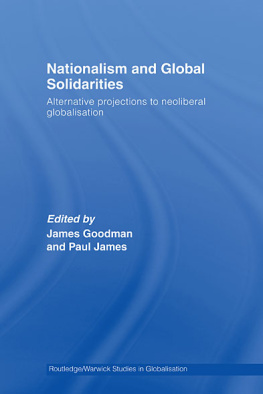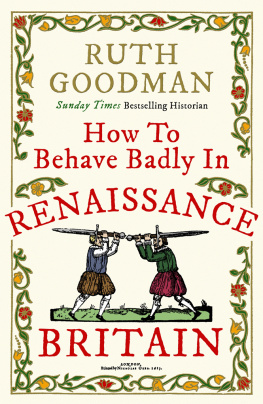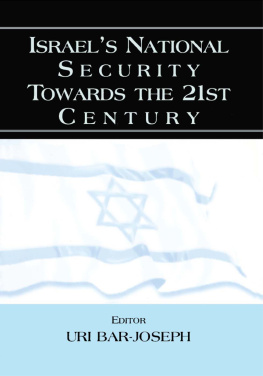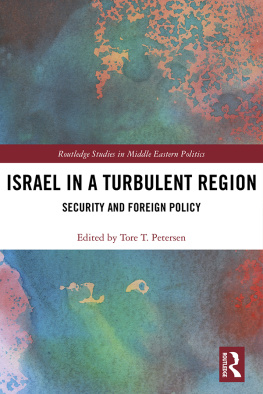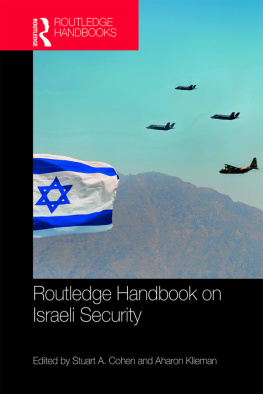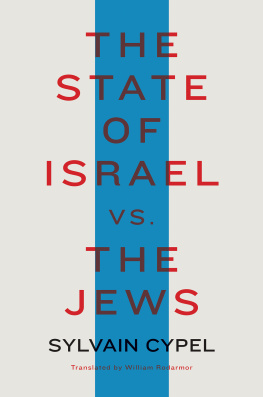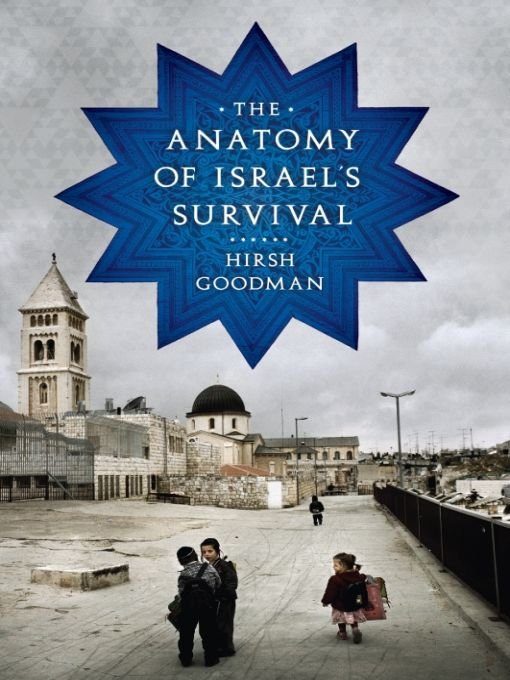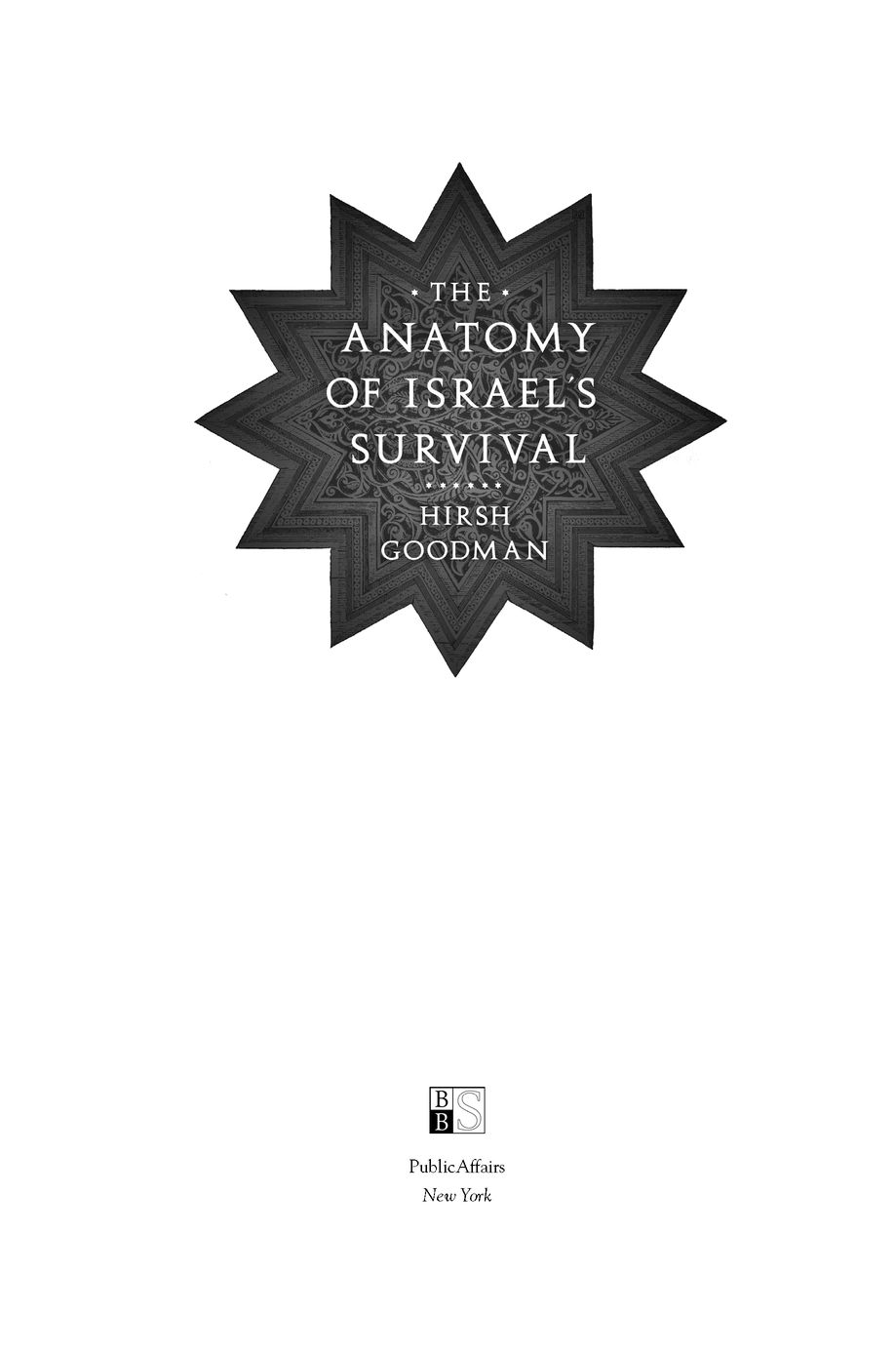Table of Contents
For Lev, Gavriel, Maya, and Shai, in the hope that they may know peace in their time, and especially for Isabel, my friend and counsel.
PROLOGUE
Can Israel survive? The question used to infuriate me. Does someone wake up in Britain, or America, or even Burundi, and ask themselves whether their country can survive? Wasnt it just bizarre that after over sixty years as an independent state, there were still those who questioned Israels longevity and, by implication, its legitimacy?
It has taken me years to understand there is much merit to the question, for both Israel and its enemies.
Modern Israel faces challenges from Arab demography; the explosion of the ultraorthodox community; enemies to the north, east, and south, and as far away as Iran; and terrorism from closer to home. It is a young country with young institutions. Its liberal and independent legal system is under constant attack from the right wing and Orthodox, and its democracy both entrenched and fragile at the same time. It has no natural resources to speak of other than brainpower, and this, too, is subject to instability given the lure of globalization.
As things are now, Israel stands to do itself more damage through peace than in any war. If a peace is agreed on that requires massive population transfers, the resultant internal dissension could be potentially more damaging to Israel than external conflict. Thus, in war and in peace, Israel is threatened.
In May 2011, U.S. President Barak Obama called for negotiations for a Palestinian state based on the 1967 lines with appropriate land swaps. Israels prime minister, Binyamin Netanyahu, responded by saying Israel could never return to the 1967 boundaries, which he called indefensible. Israel and its most important ally, the United States, seemed to be on a collision course.
Now, with over one hundred countries demanding that a Palestinian state be established within the 1967 borders, even unilaterally, and the Middle East exploding around it unpredictably, the pressures on Israel seem greater than ever before.
All this is only the tip of the iceberg.
ONE
The Cutting Edge
Of all the existential threats Israel faces, other than civil war, common wisdom has it that Iran is at the top of the list. Iran is maniacally dedicated to Israels destruction, and says so on every occasion, in every language, and at every opportunity. By now even the parrots in the Teheran zoo can repeat the mantras of hatred calling for Israel to be wiped off the map, its people sent back to Poland, Palestine liberated, for the cancer to be removed from Arabia, and the Wests agent of evil, Israel, crushed and expelled.
Not since Hitler have the Jewish people theoretically faced such a threat. Half of the worlds Jewish population currently lives in Israel. Now, like then, the Jews actually have very little to do with the problem, but provide a convenient whipping boy for the Iranian regime and its aspirations of regional hegemony and control of the Gulf. Israel has no unavoidable disputes with Iran once you get past its right to existno common borders or contested resources. The two countries armies have never clashed. Yet it is ostensibly because of Israel that Iran is rushing to attain nuclear weapons and expending considerable amounts on missile and satellite programs, among the other weapons it is amassing for its day in the field with the Jewish state. Or so Teheran says.
A nuclear Iran, it is now recognized, is not Israels problem alone. It possesses missiles that bring the Gulf states, Egypt, Turkey, Europe, and Russia all within reach. A nuclear Iran would be transformative, a country not easily gone to war against, and one that will have considerably more power on the regional stage. And if Iran goes nuclear, it is almost certain that Turkey and Egypt will accelerate their own programs and Saudi Arabia would buy an off-the-shelf bomb from Pakistan. Libya agreed to dismantle its nuclear program in December 2003. The international crisis that broke out with Colonel Qaddafis regime in March 2011 would have looked very different had Qaddafi had the bomb.
A nuclear Middle East is in no ones interest; therefore, opposition to the prospect is wide. The United States, China, and Russia have imposed sanctions on Iran in the hope of impeding the bomb. Israel and Saudi Arabia find themselves on the same side of the fence.
But Iran is Israels problem most of all. No other country is existentially threatened by Iran, in a position to suffer irreparable damage if attacked with nuclear weapons. Those imposing sanctions and locked in diplomacy to try to resolve the problem are involved in global power play, not a life-and-death situation. Iran is not calling for the destruction of Turkey or Saudi Arabia, and if America, China, or Russia loses the game, as they indeed might, it is not their heads that will be on the chopping block.
For Israel, there is no margin for error. Over 70 percent of Israels population, one-third of all the Jews in the world, and its ports, airports, refining capacities, and industry are located along the coastal plain, 161 miles long from north to south and some ten miles deep, about the size of an average game park in Africa. I took a helicopter ride recently, taking off from the Herzliah airfield just north of Tel Aviv. Hardly six hundred feet in the air and you see it all in the palm of your hand, from Ashkelon shimmering in the south to the Haifa bay and Acre in the north, the cities of Holon, Rehovot, Nes Tsiona, Petah Tikva, Netanya, Ramat Gan, Kfar Saba, all packed together like eggs in one basket. Along the coast are the chimneys of power stations and desalination plants, ports and tourist areas. The highways to either side are packed with afternoon traffic and the new office and residential towers that have sprouted up between Tel Aviv and Ramat Gan, glowing in the sunset. In one glance you can see five of the countrys major universities, all of its ports, its major international airport, highways, railways, and the center of its business life. I remember the pictures from Hiroshima and Nagasaki and think of what happened there. Imagine the devastation of a bomb five, ten, a hundred times more powerful in an area as dense as this one, humming with traffic and life underneath. If attacked with nuclear weapons it would be, to use a phrase attributed to Moshe Dayan, the destruction of the Third Temple. Everything would be lost. There would be no second chance.
The Iranians know this; hence the temptation, the dream, that it could be done, even knowing that Iran would suffer terribly as a result. But with a population ten times that of Israel and a country seventy-five times as large, Iran reckons that no matter how harsh the punishment meted out in return for attacking Israel, it would be mauled, not killed. In this context, none of the symmetry and deterrence that kept the Cold War cold applies, and there is none of the diplomatic pragmatism that even the most repressive Soviet leaders possessed. Irans regime is based on brute power; its calculations cannot be put into a rational context. From Israels point of view, they must be taken at their word. To do otherwise would be to invite catastrophe.
Yet of all Israels major problems, the Iran one is simplest to deal with. It carries none of the contention of a potential settlement with the Palestinians, or even with the Syrians if Israel has to give up the Golan Heights in return for peace. There is no internal debate in Israel as to how to approach the Iranian issue, or whether too much money is spent on countering it. It is not an electoral issue, and it crosses all political boundaries. No pro-Iran lobbyists are to be found in the Knesset, even among the most vocal Arab opponents of the Zionist Jewish state.




